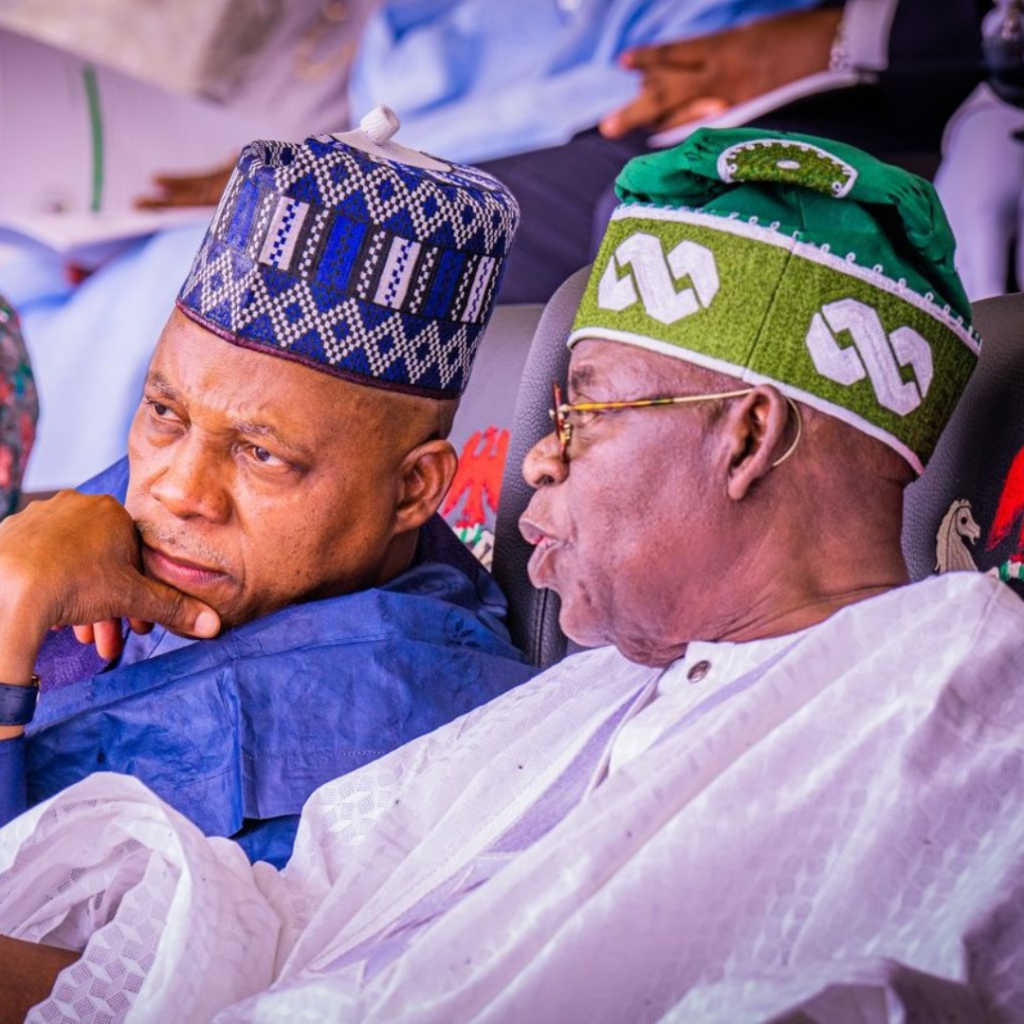
It’s been two weeks since Nigeria’s President, Bola Tinubu, left the country for the United Kingdom (and most recently, Paris, France) on leave. On Wednesday, Vice-President Kashim Shettima also left the country for Sweden on a work visit. Ideally, the VP is supposed to be in charge of the country while the President is away but Shettima’s absence has now left many Nigerians worried about the vacuum this has created and also puzzled about who is in charge of the country seeing as both its first and second citizens are absent.
If you are wondering too, the answer is this – no one in particular.
Is it illegal for them to be absent at once?
The quick answer to this is no, the longer answer is something along the lines of “not exactly”. While the constitution does not make it illegal for both the President and his Vice to be absent at the same time, it’s not exactly the best way to rule a country with pressing issues like Nigeria. Many have expressed these concerns before too.
In May for instance, when Tinubu and Shettima were both out of the country, former Vice President, Atiku Abubakar raised similar concerns on X where he asked – “ Who is in charge of the government at this point, or is it right to assume that we are on autopilot?”. We are asking the same thing now but like last time, there is no straight answer. Addressing questions about Tinubu and Shettima’s absence, Special Adviser to the President on Information and Strategy, Bayo Onanuga, said that “no vacuum” had been created but that doesn’t exactly put the questions to rest.
Will their absence create issues in the country?
The answer is yes. While this may not happen immediately, if the absence of both men stretches longer than it should, uncertainties about who’s in charge could create strong issues especially if Nigeria is hit by a national crisis. Delays in decision-making (especially as it concerns security and national emergencies) could also lead to a crisis.
So even though Bayo Onanuga says that “all state organs are functioning as usual,” things are also likely to easily and quickly escalate at any time. There are already a few issues that require the President’s physical presence;
2025 Budget
There’s a little bit of drama happening in the National Assembly and the 2025 budget is the main character. “Isn’t it too soon to be talking about the 2025 budget” – according to the 1999 constitution, it’s actually too late to be talking about the 2025 budget. Section 11(1)(b) of the Fiscal Responsibility Act 2007, confirms that the federal government is expected to prepare and submit the budget for the coming year to the National Assembly at least four months before the new financial year begins. This law is supposed to promote transparency in how the country’s money is used and make it easier for lawmakers to review the budget before 2025. But so far, it’s been radio silence from Aso Rock. Now here’s the gag – the 2025 budget needs the president’s signature before it can even be sent to these lawmakers. With less than three months to 2025, the budget could use present leaders who can prevent further delay. The guys at the National Assembly, who’re tired of the delay, have given the government a two-week ultimatum to submit the budget.
Fuel prices
About two weeks ago, fuel prices went crazy. In Lagos, the price of fuel is now ₦998 per litre, up from ₦855. In Abuja, it has increased to ₦1,030 per litre, up from ₦897. In response to the price hike, several Nigerians started calling out the President, who was in the UK at the time, and asking him to regulate prices quickly. The president’s response was slow but he has assigned the duty of bringing the prices down to Minister of Information and National Orientation, Mohammed Idris who’s currently having discussions with members of the Labour Union. The meeting didn’t end in any resolution and given the Labour’s history with the government and President Tinubu’s physical absence, it could take a few more weeks before these prices come down.




